Soil and Landscape Science

We conduct theoretical, methodological and applied research to improve understanding of soil processes and the drivers of soil and landscape variability at different spatial and temporal scales. Our research aims to better understand, assess and monitor soil functions, which help to deliver ecosystem services that enable life.
News and latest activity
- Research Fellow position – We are seeking a Research Fellow to join our Soil and Landscape Science Group. This unique position will involve interdisciplinary collaborations with new and established researchers within the School, University and broader afield with national and international research and industry partners. The position will be responsible for a research and teaching program in soil science that combines theories, new methods, modelling and modern teaching practice. View research opportunities
- New publication – Diffuse reflectance spectroscopy for estimating soil properties: a technology for the 21st century, European Journal of Soil Science – access the paper here.
- New publication – Diffuse reflectance spectroscopy characterises the functional chemistry of soil organic carbon in agricultural soils, European Journal of Soil Science – access the paper here.
- New publication – Environmental controls of soil fungal abundance and diversity in Australia’s diverse ecosystems, Soil Biology and Biochemistry – access the paper here.
- New publication – Deep transfer learning of global spectra for local soil carbon monitoring, ISPRS Journal of Photogrammetry and Remote Sensing – access the paper here.
- New publication – The cost-effectiveness of reflectance spectroscopy for estimating soil organic carbon, European Journal of Soil Science – access the paper here.
Current research
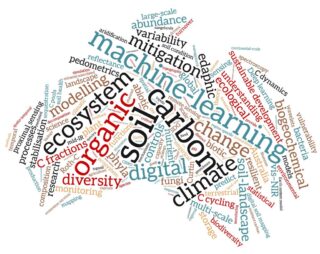
- Soil carbon science
- Integrated accounting and monitoring of soil and landscape functions
- Proximal sensing of soil properties that affect soil health and condition
- Soil-landscape modelling and digital soil mapping
- Improved representation of soil carbon and nutrient cycling in simulation models
- Impacts of global change on soil carbon capture and storage
- Global soil spectroscopy
Our people
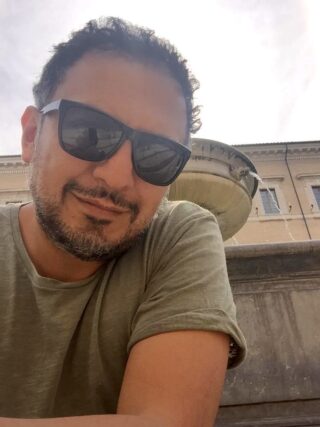
Professor Raphael Viscarra Rossel
Raphael is a soil scientist who’s work helps to better understand and predict how soil functions respond to climate and anthropogenic change. He’s particularly interested in carbon sequestration, the preservation of biodiversity, nutrient cycling and food production. He develops new methods for measuring, mapping and monitoring soil, and uses empirical, machine learning and mechanistic models for prediction at relevant spatial and temporal scales. He is a Clarivate Analytics highly-cited researcher, has received numerous awards and has supervised and co-supervised many undergraduate and postgraduate students. Raphael serves as associate editor of the European Journal of Soil Science and in the Editorial Advisory Board of Global Change Biology. After 11 years at CSIRO, Raphael moved to Curtin in 2019 to create new research capacity in soil and landscape science.
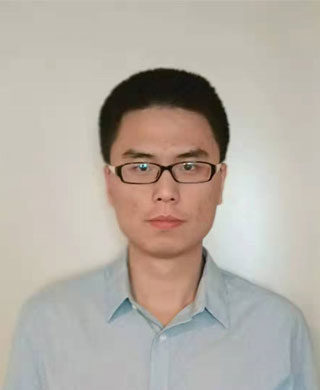
Dr Zefang Shen
Zefang’s current research is in the application and development of novel machine learning for optimal, transferable, and interpretable soil spectroscopic modelling. His PhD research focused on the development of rehabilitation exoskeletons.
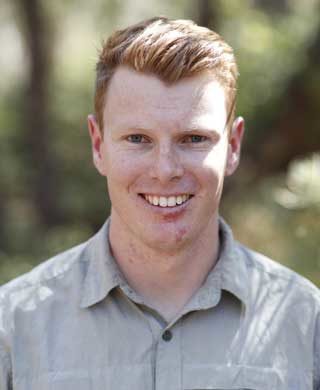
Dr Lewis Walden
Lewis’ PhD research focussed on the impact of disturbance (drought and wildfire) on forest structure and carbon sequestration. Lewis’ interests are broad but are underpinned by an interest in measuring, mapping and monitoring systems at a landscape scale, particularly in relation to management and disturbance.
Dr Mingxi Zhang
Mingxi’s PhD research focused on micro-climate prediction with hybrid models. Mingxi’s current research is the understanding of soil organic dynamics and its response to climate change. His interest are also in the use of remote sensing and big data for better understanding of soil and environmental condition.
Mr Farid Sepanta
Farid is a Technical Officer responsible for managing the soil science laboratory, maintaining the lab’s various instruments, performing a wide range of soil analyses and contributing to experimental design pertinent to the research conducted by the group. He has a background in soil science and data analysis. His work helps to increase efficiency and productivity and decrease errors, enabling him to deliver high-quality work with a strong emphasis on safety.
Students
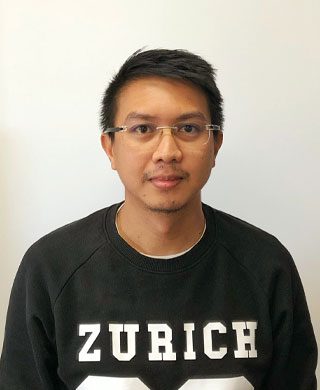
Mervin (Pogs) Manalili
Pogs’ PhD research will contribute to improving our understanding of the nature, composition, and dynamics of soil organic carbon. Pogs has a background in soil science and land and water resources engineering. He has collated about 10 years of agricultural research experience in agronomy, crop physiology, soil physics, and soil-water management aspects of tropical rice-based cropping systems at the International Rice Research Institute (IRRI).
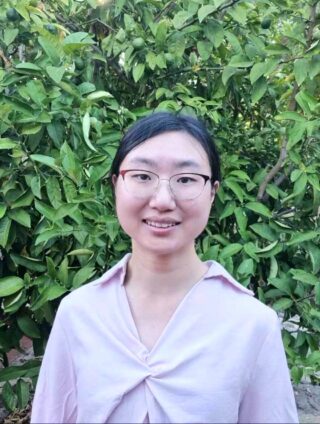
Yang (Teresa) Hu
Teresa’s PhD research aims to investigate methods to characterise and understand soil health more effectively. She will explore the development of ‘next-generation’ soil health indicators with sensing technologies and machine learning and an integrative framework that considers soil physical, chemical and biological properties.
Nathan Wells
Nathan’s PhD research investigates links between Australian native plant biodiversity and soil carbon storage. His Honours research focused on the field-scale digital mapping of soil carbon and respiration across different agricultural land uses. Nathan has experience in environmental management and restoration and a passion for remediating degraded soils. Additionally, his time working as a landscaper and environmental field technician has given him an appreciation for practical approaches to land management.
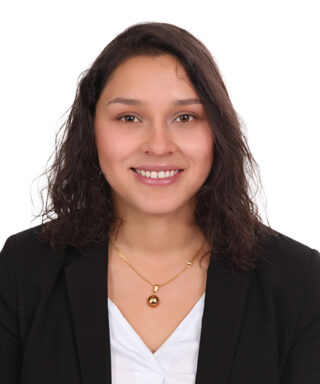
Lorena Cortes Paez
Lorena’s PhD research focuses on developing spatial-temporal characterisation and modelling to of soil carbon, carbon composition, and microbial properties at a range of scales. Lorena has experience in soil carbon modelling using empirical models, as her master’s degree compared several statistical and machine learning methods to digitally map soil organic carbon at the farm scale.
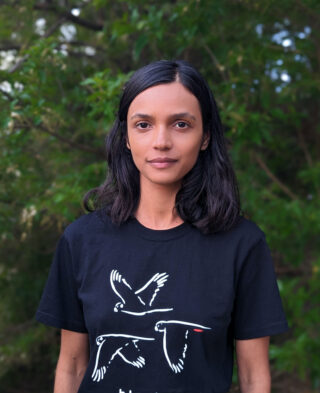
Sadichhya Adhikari
Sadichhya’s PhD research investigates the mechanisms that govern the storage and release of soil organic carbon in Western Australian soils, specifically the effect of clay minerals (kaolinite) and iron oxides. Her project involves the design of laboratory and field experiments based on solid theoretical understanding of the mechanisms involved and uses modern spectroscopic methods for investigation at the relevant scales.
Visiting and past researchers
Dr Juhwan Lee
Juhwan’s research focuses on the effects of climate and land use change on soil carbon and nitrogen cycling. His general approach is to use empirical and biogeochemical modelling to predict the complex interactions between soil, plants, carbon storage and greenhouse gas emissions in agroecological systems across different spatial and temporal scales.
Dr Yuanyuan Yang
Yuanyuan Yang’s research focuses on developing a better understanding of the geographic distribution of soil microbial communities and their role in biogeochemical cycles. Her interest also extend to developing machine learning models with spectroscopy, remote sensing and digital maps to predict and map the distribution of soil microbial communities.
Mr Vitor da Silveira Freitas
Vitor’s PhD research focuses on the evaluation of near and mid-infrared spectroscopy, laser induced fluorescence (LIF) and laser induced breakdown spectroscopy (LIBS) for the quantification of soil properties with relation to crop productivity. His interest extend to the quantification of soil organic matter quality, and spectroscopic modelling to predict soil physical and chemical properties. His visit is part of a collaboration between Curtin’s Soil and Landscape Science Group with the University of Sao Paulo (IQSC) / Embrapa Instrumentation.
Dr Lu Xu
Lu is a lecturer at Jiangsu Normal University in Xuzhou province, China. His expertise is in the application of remote sensing and geographic information systems in soil science, and ecology. His research focuses on the retrieval of soil information from spectra and digital images to predict soil degradation processes such as salinisation.
Dr Johanna Wetterlind
Johanna’s research focuses on the characterisation of soil organic carbon and nitrogen mineralisation at the farm-scale using digital sensing and mapping methods, including visible–near infrared spectroscopy, gamma-radiometrics, geostatistics and other pedometrics methods.
Research opportunities
The School of Molecular and Life Sciences are seeking a Research Fellow to join its Soil and Landscape Science Group. This unique position will involve interdisciplinary collaborations with new and established researchers within the School, University and broader afield with national and international research and industry partners. The position will be responsible for a research and teaching program in soil science that combines theories, new methods, modelling and modern teaching practice.
Working in a collegial and supportive team, in this role you will:
- Undertake novel research to advance our understanding of soil processes and functions.
- Contribute to developing soil science teaching material in Agriculture and Ecology.
- Contribute to the coordination and development of the SLSG’s research goals.
- Contribute to the functioning of the SLSG (planning, organising, staffing, leading), its research and other activities.
- Publish in quality (Q1) scientific journals.
- Write applications for competitive funding.
- Disseminate research findings through seminars, workshops, and conferences.
- Undertake supervision and mentorship of honours and research masters’ and doctoral students.
- Support the development of the soil science research and teaching capability at Curtin University.
The successful candidate will be passionate about science, cutting-edge soil science research and the development of testable new mechanistic hypotheses to help understand soil processes at different scales. Ability to build and sustain diverse research networks is important to the success of this position.
For questions about the position please contact Professor Raphael Viscarra Rossel on +61 8 9266 1154, or via email on r.viscarra-rossel@curtin.edu.au
For information on how to apply see here or visit our job vacancies page
Collaborators
- Emeritus Professor Richard Webster, Rothamsted Research, UK
- Professor Zhou Shi, Zhejiang University, China
- Dr Thorsten Behrens, University of Tubingen, Germany
- Professor Jose Dematte, Universidade de São Paulo, Brazil
- Dr Dick Brus, Wageningen University and Research, The Netherlands
- Dr Craig Lobsey, University of Southern Queensland
- Dr Zhongkui Luo, Zhejiang University, China
- Associate Professor Viacheslav Adamchuk, McGill University, Canada
- Professor Johan Six, ETH Zürich, Switzerland
- Mr Philipp Baumann, ETH Zürich, Switzerland.
- Dr Yingping Wang, CSIRO
- Dr Andrew Bissett, CSIRO
- Dr Jeff Baldock, CSIRO